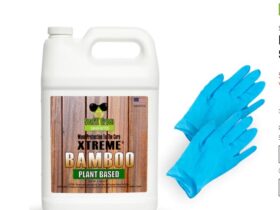Navigating the field of medical translation services can feel like walking through a maze—especially when you’re putting something as important as your medical documents in someone else’s hands. Luckily, with the right knowledge and tips, you can select reliable services with ease.
1. Evaluate the translator’s medical expertise
The first step when selecting medical translation services should be to assess the translator’s medical expertise. You’re not just looking for a translator— you’re looking for a medical expert who can fluently speak the language of healthcare.
But how can you gauge their medical know-how?
- Look at their educational background. Translators with degrees or certifications in the medical field have a solid foundation of medical knowledge. They understand complex medical terminologies and concepts, making them more reliable in delivering accurate translations.
- Check their experience. Years of experience in medical translation services often equate to a mastery of the medical language. If the translator has been around the block, they’ve likely encountered and successfully translated a vast array of medical documents.
- Ask for their specialization. Just as doctors specialize in specific fields, so do medical translators. A translator specializing in cardiology, for example, may not be the best fit for translating psychiatry-related documents.
- Request for references or sample works. Nothing speaks louder than proven results. Ask for references from previous clients or view sample translations to judge the quality of their work.
Remember, the more medical expertise the translator has, the more accurate and reliable the translation will be. Don’t be shy about asking questions or requesting credentials. After all, it’s your health information on the line here.
In the next section, we’ll tackle another important factor to consider when choosing medical translation services— quality control measures. So, stay tuned!
2. Check the translation service’s quality control measures
Once you’re satisfied with the translator’s medical expertise, it’s time to turn your attention to the translation service’s quality control measures. This is a key factor in ensuring that the end product is accurate and precise. So, what should you be looking out for?
- Multiple levels of review: Quality control in medical translation services should ideally involve more than one person. A multiple-review system ensures that any potential errors are caught and rectified before the translation reaches you.
- Use of specialized software: Technology can be a powerful tool in maintaining quality. Look for services that utilize translation memory software or terminology management tools. These not only enhance consistency but also speed up the translation process.
- Quality assurance certification: Is the translation service ISO 9001 or EN 15038 certified? These certifications are clear indicators that the service adheres to recognized quality standards in the translation industry.
- Feedback process: A translation service that actively seeks feedback demonstrates a commitment to continuous improvement and delivering high-quality work.
Paying attention to these quality control measures can save you from the headache of dealing with poorly translated documents. It’s the equivalent of having a safety net—catching any missteps before they cause a fall.
Quality control measures and medical expertise go hand in hand when selecting reliable medical translation services. But there’s still one more piece to this puzzle, which we’ll explore next— confidentiality policies. Stick around.
3. Assess the translation service’s confidentiality policies
The final piece of advice I have for you is about something you might not immediately think about: confidentiality. When you’re dealing with sensitive medical information, it’s essential to ensure that your chosen medical translation services have strict confidentiality policies in place. Here’s what to look for:
- Data Encryption: In today’s digital age, it’s all too easy for data to fall into the wrong hands. Therefore, make sure the translation service uses secure, encrypted methods for transferring and storing data.
- Non-Disclosure Agreements (NDAs): An NDA is a legally binding contract that prevents employees and contractors from disclosing sensitive information. Top-tier medical translation services should have this as a standard part of their operation.
- Privacy Policy: Beyond the NDA, there should also be a clear, comprehensive privacy policy. This will outline exactly how your information is stored, used, and protected.
- Staff Training: Confidentiality is not just about policies and contracts; it’s also about people. The staff should be adequately trained in handling sensitive information and maintaining strict confidentiality.
There you have it: the trifecta of selecting reliable medical translation services—medical expertise, quality control, and confidentiality. With these three factors in mind, you’re well-equipped to make an informed decision. Now, go forth and translate!







